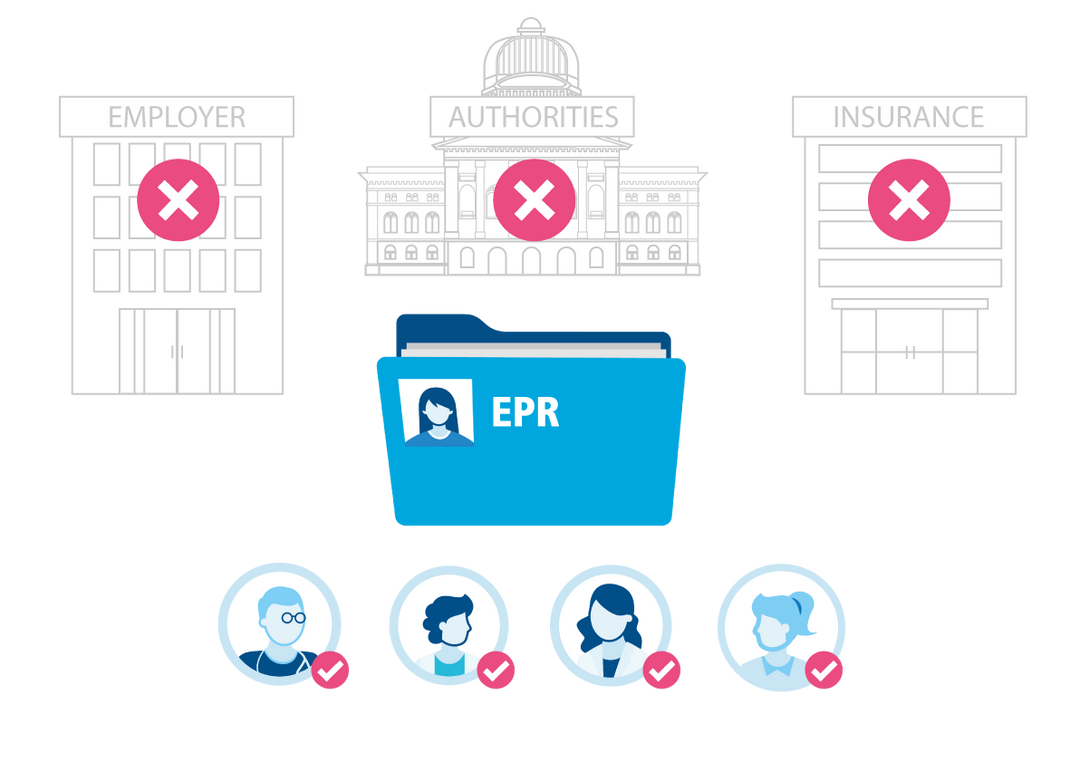What is the EPR?
The electronic patient record (EPR) is a personal collection of health-related documents. These could include, for example, your hospital discharge report, Spitex (home care) report, medication list, X-ray findings, or vaccination card.
Via a secure internet connection, this information is accessible at any time both for you and for your healthcare professionals – on a PC or smartphone, at home or wherever you happen to be. But you decide yourself who can see which documents, and when. The medical information in the EPR belongs to you, so you decide how it is to be used.
In an emergency, thanks to the EPR, important information is available rapidly, even if you are not able to provide it yourself.

.svg)
.svg)
.svg)







.svg)